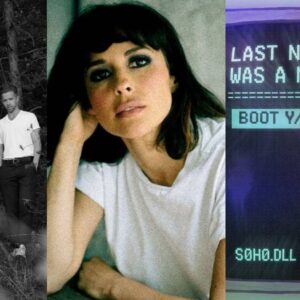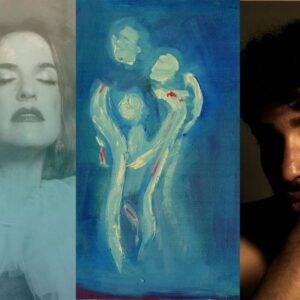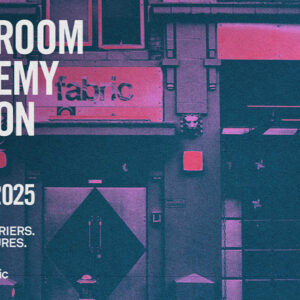> Dipto Paul
Sajed Fatemi is widely known as a prominent singer in Bangladesh, as well as being a professional journalist.
Combining his solid educational foundation and a passion for singing, he is currently the main vocalist of NakshiKatha Band, while also working as a public relations director at Eastern University.
As a professional singer, Fatemi has recorded 11 successful audio albums, released nationally. He has performed at more than 500 concerts in Bangladesh and abroad along with his band. He and his band are adored by fans, who have treated them to food, drinks and other things just to spend time with him.
Being a professional journalist too, he has worked at different media organisations in Bangladesh and hosted various live shows at Shomoy Television, Boishakhi television and NTV.
I talked exclusively with Fatemi to find out more:
So, how are you and how is everything going?
I am fine and by the grace of almighty everything is going well. I am now going through a very busy time with my university career as well as with the music. There are few live shows scheduled for television this month.
I really want to know when you started singing – can you tell us more about that?
I started singing from my childhood. When I was in class 6, I attended a cultural program named ‘National Children Award Ceremony’ at Lalmonirhat district and I performed on the stage there for the first time. I was selected as the runner up performer of the program and from then my journey with music started. After that I became famous and my name was spread all around as a child artist.
When did you step into the Bangladesh music industry?
I started my music career in 2003 with my first solo album named ‘kotodin Tomay Dekhina’ released by the label Sangeeta. In 2006, the BBC carried out a survey to choose the best Bangla songs from among the Bengali’s all over the world. Finally, they selected 20 songs. I picked up those songs and arranged two mixed audio albums titled ‘Manush Manusher Jonno’ and ‘Ek Nodi Rokto Periye’, which was released in July 2006 from Laser Vision. From then I started my music career. After that I started hosting regular musical shows on television.
Tell us more about your TV career and how came to the idea of creating your own music band?
After my first solo album, I got an offer from NTV, a mainstream television channel of Bangladesh. There I hosted a weekly program titled ‘Mon Amar Sondhan Kori’, from November 2004 to February 2007. It was a famous show based on Baul (Folk) songs. Through hosting that, Folk songs grabbed my full attention and I became addicted to this style of music. After that, in 2007, I started working with a Folk-based Band GAANWALA. In 2008, we released the band’s first audio album titled ‘Nojor Rakhis’ through Deadline Music. In 2009, a mixed album titled ‘Ma Jononi’, which was arranged and tuned by me, was released on International Mother’s Day by Sangeeta. All of the nine songs were about motherhood. In 2012, we changed our name from GAANWALA to NAKSHIKATHA.
What is your opinion about the contributions of singers to the music industry?
I think all musicians should contribute our best efforts so that we can develop and enrich our country’s music industry. I have tried to do that, but am not sure how successful I am. In April 2015, a 10-day music fair titled ‘Gaan Mela’ was held at the premises of the Bangladesh Shilpakala Academy and I was the planner and co-ordinator. Through this fair I tried to connect with singers, musicians, lyricists, composers and we worked together to achieve this goal. Next year many singers of Bangladesh will release a huge number of songs that are better quality than before. So, I think these types of events should be arranged on a regular basis as the music industry gives so much entertainment to a big audience.
How have you carried on your music career alongside your job?
Music is a passion to me. My job never hampers my musical practice time. After completing my official work, I have 7 to 8 hours every day for practicing. Besides I get two holidays per week also. For 20 years, I have maintained the same routine.
Finally, what is your advice to upcoming singers and newcomers?
There is one thing I will say – music can relate to various social issues. So, don’t misuse the opportunity. Besides, we have a rich culture of folk music and also, we have a vast opportunity to enrich our folk music. Let’s try to do so and promote this worldwide, and finally, love music.















